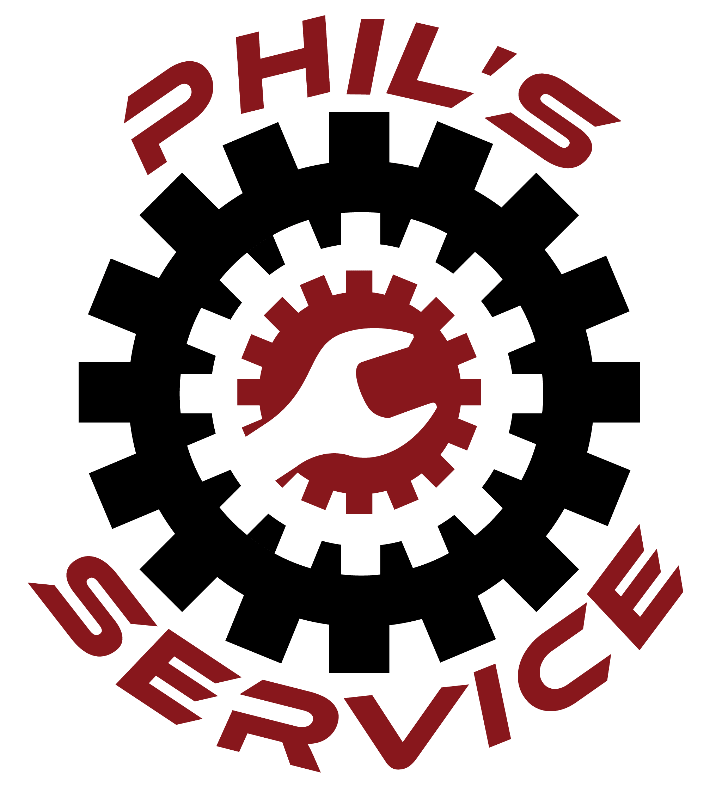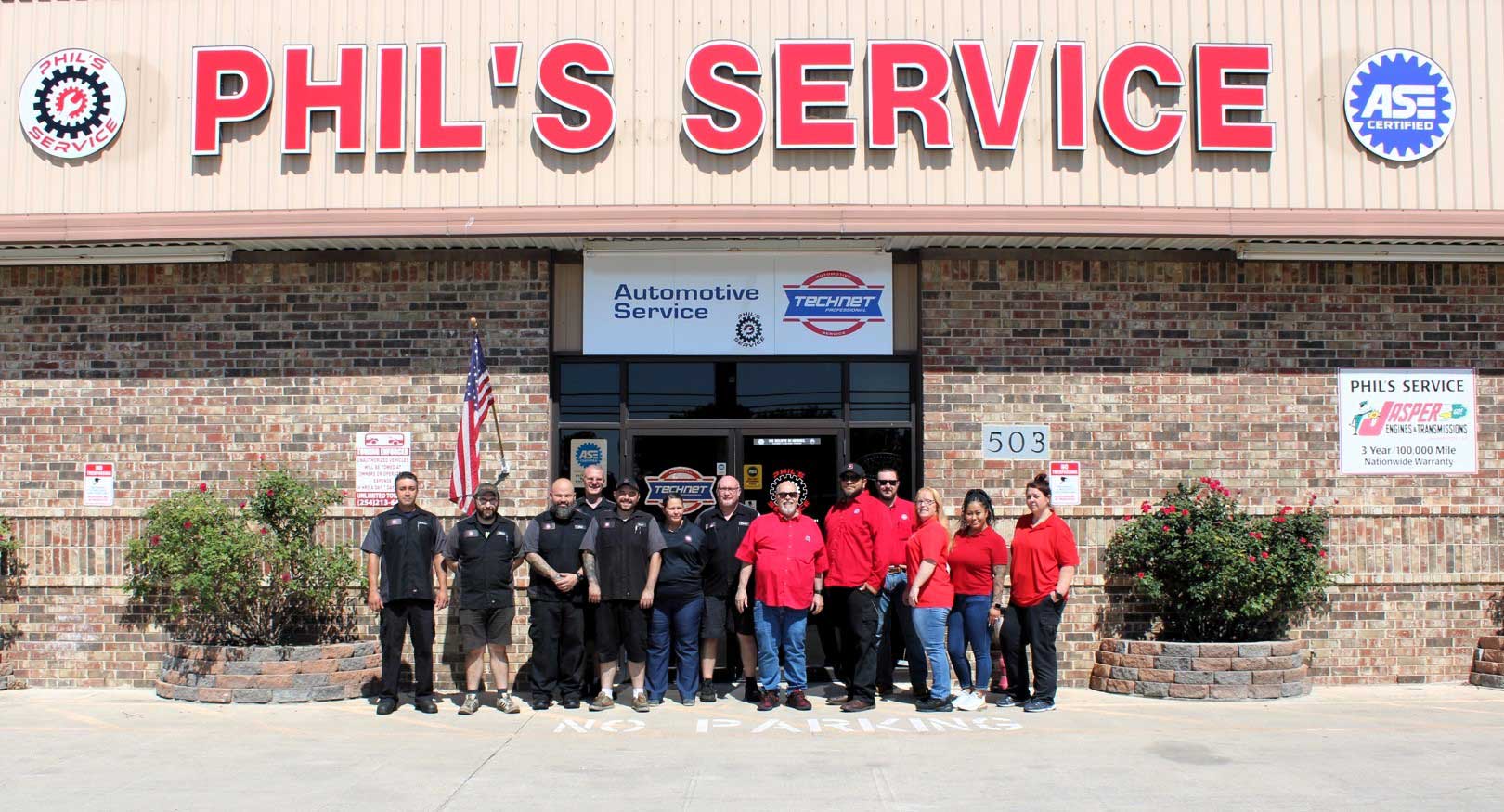Why Are My Rear Brakes Not Working?
Vehicle brakes are the most important components of your car. One day, they might be the only thing that kept you from a major accident.
Your brakes take care of you, so you must take care of them. By understanding when your rear brakes aren't working and why, you'll know when it's time to visit a mechanic.
Keep reading to learn how to avoid brake failure.
Signs of Brake Failure
When your vehicle brakes are on the fritz, your car will warn you before your brakes fail. A warning light might be one of the first signs of problems with your rear brakes.
Other indications it's time for a trip to a Killeen mechanic include:
- Grinding sounds
- Vibrating sensation
- Burning smell
- Puddle in your driveway
- Your car moving to one side while braking
If you notice that you are having to apply more and more pressure over time to come to a stop, you might need a brake replacement.
Antilock Braking Systems
Modern cars are equipped with antilock braking systems (ABS) to prevent your brakes from completely failing in most cases. An ABS will note that there is a problem with the brakes and default to a simple system for braking.
The failsafe in place to prevent complete brake failure is the hydraulic system. Since 1968, every vehicle has been equipped with these systems, in addition to emergency brakes.
Some systems control the front and back brakes separately so you would lose only half your brakes in a worst-case scenario.
Causes of Brake Failure
The most common reason brakes fail is the lack of brake fluid or air in the brake fluid. This is the first thing you'll want to check if you notice that your brake pedal is easy to push but outputs less braking (soft pedal).
Soft Pedal
If there is brake fluid below the full level, your brakes might be failing due to worn brake pad friction material or worn discs or drums.
If there is enough fluid, check the temperature. Hot brake fluid is caused by towing, descending steep hills, or repeated hard use. Old brake fluid can boil which is why it's important to have this fluid changed every other year.
There shouldn't be air in your brake lines because brake hydraulics are sealed. However, a spongy pedal could indicate air in the brake fluid. This might be due to a bad master cylinder or failure of the wheel cylinder.
A bad residual valve or bad wheel bearing are uncommon causes of soft pedals while braking, but they are possible. Bad residual valves can be especially difficult to pinpoint so it's important to visit a mechanic when you have a brake issue.
Hard Pedal
A hard pedal when braking indicates entirely different issues. A hard pedal is defined by how much pressure it takes to get enough braking force. The common causes of a hard pedal are:
- Bad servo unit
- Vacuum hose leak
- Collapsed vacuum hose
- Bad check valve
- Seized caliper
- Very worn brake pads
In most cases, a hard pedal is caused by a failure in the servo unit system. A servo unit uses an engine vacuum system to help you apply the brakes. This component is mostly universal in modern vehicles.
A collapsed vacuum hose, bad servo unit, or bad check valve will all cause a vacuum hose leak. You may notice rough engine idle as a symptom as well.
A less common cause of a hard pedal is a brake seized or stuck brake caliper. This can happen without additional symptoms but typically causes your vehicle to pull to one side or a burning smell.
This issue can lessen your braking on your rear brakes but is more dangerous to your front wheels. Seized brakes may reduce your braking efforts by half on the front wheels, which are responsible for a majority of your braking.
Noisy brakes that are grinding are a common indication of a worn brake pad before you experience the hard pedal. If you ignore the noise and get to the hard pedal, your brake pads are in terrible shape which is dangerous to your driving.
Brakes Not Working: Failure to Disengage
Brakes that aren't engaging or disengaging well enough are major problems that require immediate reconciliation.
Brakes that are hanging or dragging will cause a burning smell because of the increased heat generation. This rarely results in a car that won't move, but driving with brakes in this condition is unsafe and results in more damage.
Brakes dragging on one or both back wheels might be due to:
- Seized parking brake cable
- Seized caliper and pads
- Clogged master cylinder return hole
- Pinched or collapsed brake lines
The same factors that cause a seized parking brake cable can cause a seized caliper or brake pad. They occur due to rust, age, or salt on winter roads.
A seized caliper or brake pad is the most common failure of this proportion. With the help of a mechanic, this problem can be fixed in about 60 minutes.
If this problem occurs to your parking brake cable, you'll need a replacement as well. You can prevent this issue in the future by avoiding driving where salt is on the road.
If you have no choice but to go through these hazards, clean your wheels and the underside of your vehicle during the winter.
A clogged master return hole or pinched brake line both cause your wheels to drag. The former causes all four wheels to have this problem while the latter is typically localized to one or two wheels.
Visit a Mechanic for Your Rear Brakes
If your rear brakes aren't working, it could be due to a variety of issues. Some are more common, like brake fluid leaks, while others require a more advanced approach to repair or replacement.
No matter the issue, Phil's Service in Killeen, Texas, is here to help. We are the city's only ASE Blue Seal Certified repair shop!
Our certified technicians will take a look at your brakes to determine the culprit and find the ideal solution. Don't put yourself at risk by forgoing brake repair. Request an appointment with our service team today.
Wondering Why Are My Rear Brakes Not Working? Call Phil's Service and schedule an inspection with a professional brake repair technician.
Vehicle brakes are the most important components of your car. One day, they might be the only thing that kept you from a major accident.
Your brakes take care of you, so you must take care of them. By understanding when your rear brakes aren't working and why, you'll know when it's time to visit a mechanic.
Keep reading to learn how to avoid brake failure.
Signs of Brake Failure
When your vehicle brakes are on the fritz, your car will warn you before your brakes fail. A warning light might be one of the first signs of problems with your rear brakes.
Other indications it's time for a trip to a Killeen mechanic include:
- Grinding sounds
- Vibrating sensation
- Burning smell
- Puddle in your driveway
- Your car moving to one side while braking
If you notice that you are having to apply more and more pressure over time to come to a stop, you might need a brake replacement.
Antilock Braking Systems
Modern cars are equipped with antilock braking systems (ABS) to prevent your brakes from completely failing in most cases. An ABS will note that there is a problem with the brakes and default to a simple system for braking.
The failsafe in place to prevent complete brake failure is the hydraulic system. Since 1968, every vehicle has been equipped with these systems, in addition to emergency brakes.
Some systems control the front and back brakes separately so you would lose only half your brakes in a worst-case scenario.
Causes of Brake Failure
The most common reason brakes fail is the lack of brake fluid or air in the brake fluid. This is the first thing you'll want to check if you notice that your brake pedal is easy to push but outputs less braking (soft pedal).
Soft Pedal
If there is brake fluid below the full level, your brakes might be failing due to worn brake pad friction material or worn discs or drums.
If there is enough fluid, check the temperature. Hot brake fluid is caused by towing, descending steep hills, or repeated hard use. Old brake fluid can boil which is why it's important to have this fluid changed every other year.
There shouldn't be air in your brake lines because brake hydraulics are sealed. However, a spongy pedal could indicate air in the brake fluid. This might be due to a bad master cylinder or failure of the wheel cylinder.
A bad residual valve or bad wheel bearing are uncommon causes of soft pedals while braking, but they are possible. Bad residual valves can be especially difficult to pinpoint so it's important to visit a mechanic when you have a brake issue.
Hard Pedal
A hard pedal when braking indicates entirely different issues. A hard pedal is defined by how much pressure it takes to get enough braking force. The common causes of a hard pedal are:
- Bad servo unit
- Vacuum hose leak
- Collapsed vacuum hose
- Bad check valve
- Seized caliper
- Very worn brake pads
In most cases, a hard pedal is caused by a failure in the servo unit system. A servo unit uses an engine vacuum system to help you apply the brakes. This component is mostly universal in modern vehicles.
A collapsed vacuum hose, bad servo unit, or bad check valve will all cause a vacuum hose leak. You may notice rough engine idle as a symptom as well.
A less common cause of a hard pedal is a brake seized or stuck brake caliper. This can happen without additional symptoms but typically causes your vehicle to pull to one side or a burning smell.
This issue can lessen your braking on your rear brakes but is more dangerous to your front wheels. Seized brakes may reduce your braking efforts by half on the front wheels, which are responsible for a majority of your braking.
Noisy brakes that are grinding are a common indication of a worn brake pad before you experience the hard pedal. If you ignore the noise and get to the hard pedal, your brake pads are in terrible shape which is dangerous to your driving.
Brakes Not Working: Failure to Disengage
Brakes that aren't engaging or disengaging well enough are major problems that require immediate reconciliation.
Brakes that are hanging or dragging will cause a burning smell because of the increased heat generation. This rarely results in a car that won't move, but driving with brakes in this condition is unsafe and results in more damage.
Brakes dragging on one or both back wheels might be due to:
- Seized parking brake cable
- Seized caliper and pads
- Clogged master cylinder return hole
- Pinched or collapsed brake lines
The same factors that cause a seized parking brake cable can cause a seized caliper or brake pad. They occur due to rust, age, or salt on winter roads.
A seized caliper or brake pad is the most common failure of this proportion. With the help of a mechanic, this problem can be fixed in about 60 minutes.
If this problem occurs to your parking brake cable, you'll need a replacement as well. You can prevent this issue in the future by avoiding driving where salt is on the road.
If you have no choice but to go through these hazards, clean your wheels and the underside of your vehicle during the winter.
A clogged master return hole or pinched brake line both cause your wheels to drag. The former causes all four wheels to have this problem while the latter is typically localized to one or two wheels.
Visit a Mechanic for Your Rear Brakes
If your rear brakes aren't working, it could be due to a variety of issues. Some are more common, like brake fluid leaks, while others require a more advanced approach to repair or replacement.
No matter the issue, Phil's Service in Killeen, Texas, is here to help. We are the city's only ASE Blue Seal Certified repair shop!
Our certified technicians will take a look at your brakes to determine the culprit and find the ideal solution. Don't put yourself at risk by forgoing brake repair. Request an appointment with our service team today.


